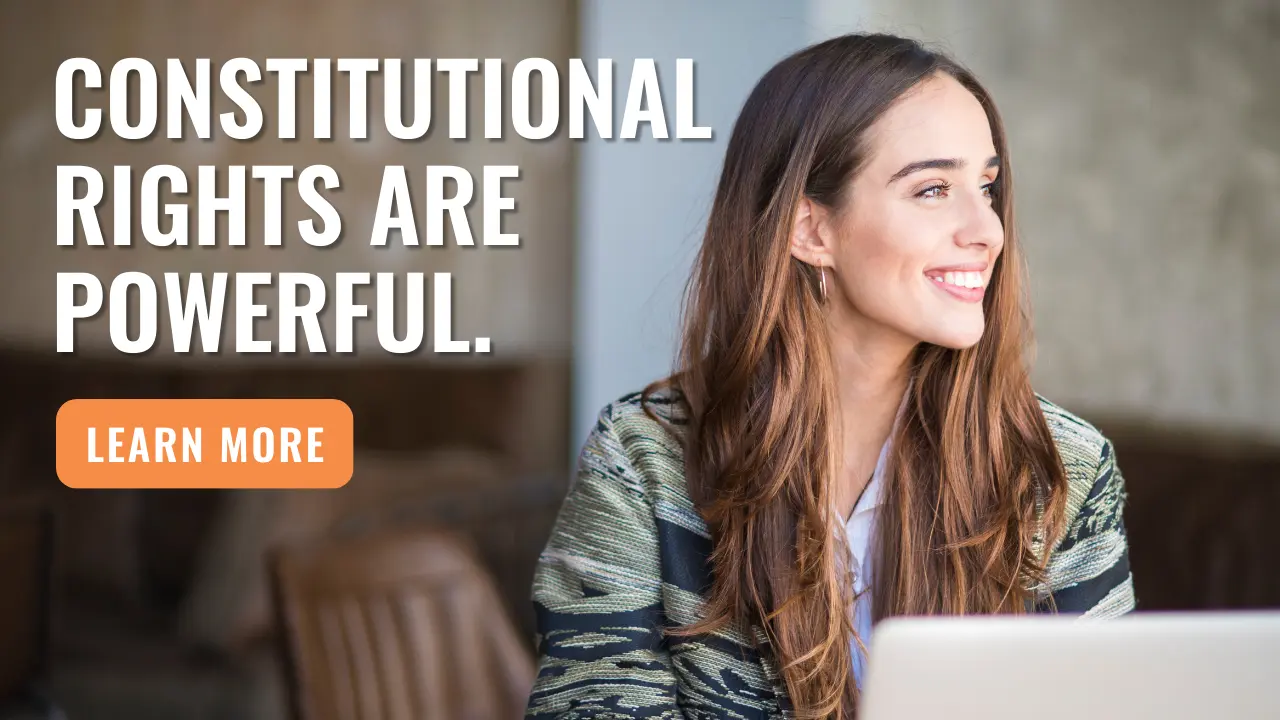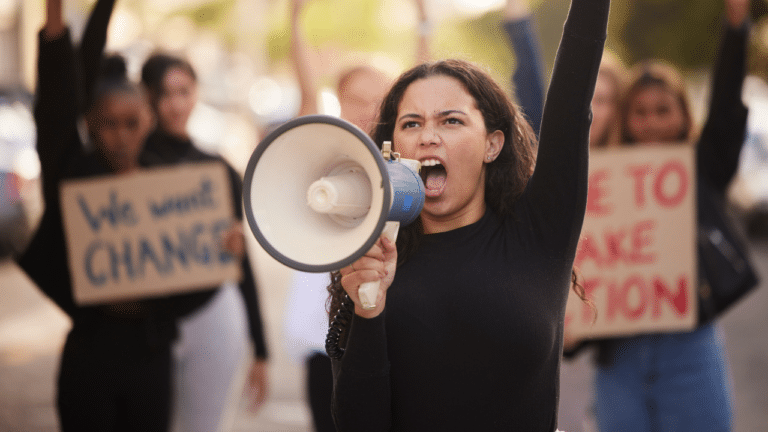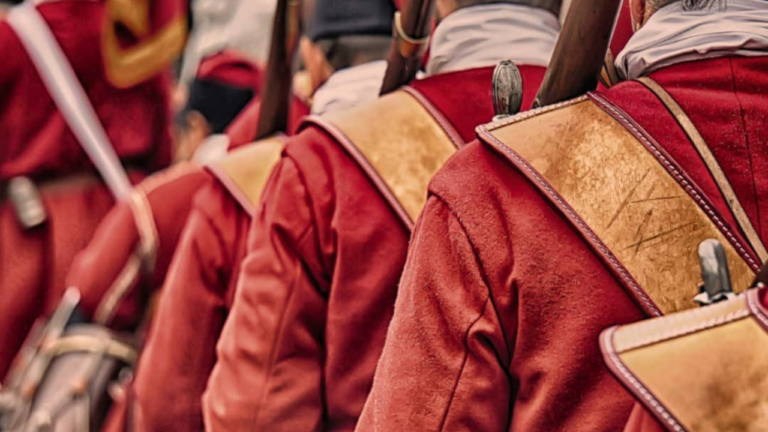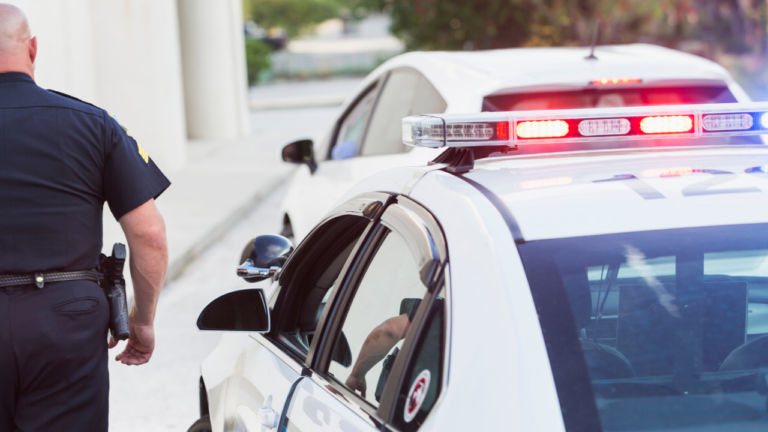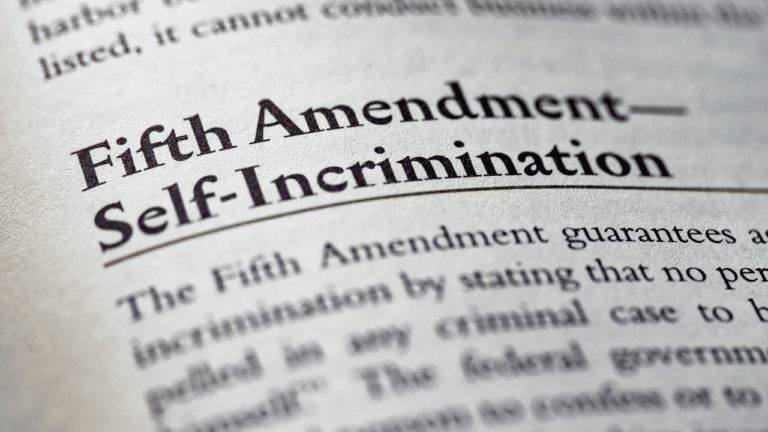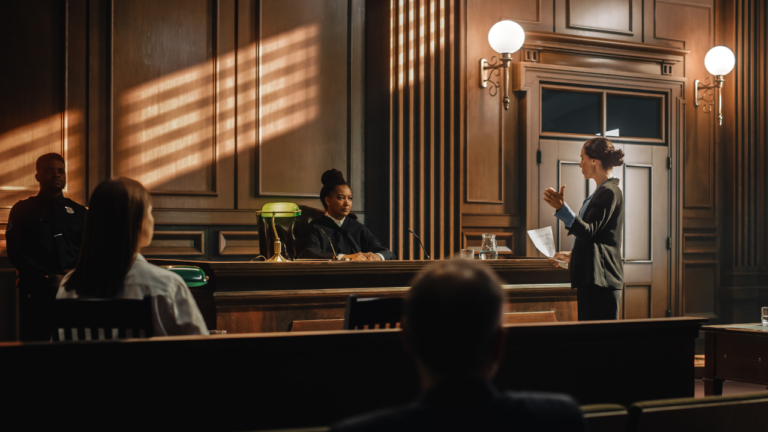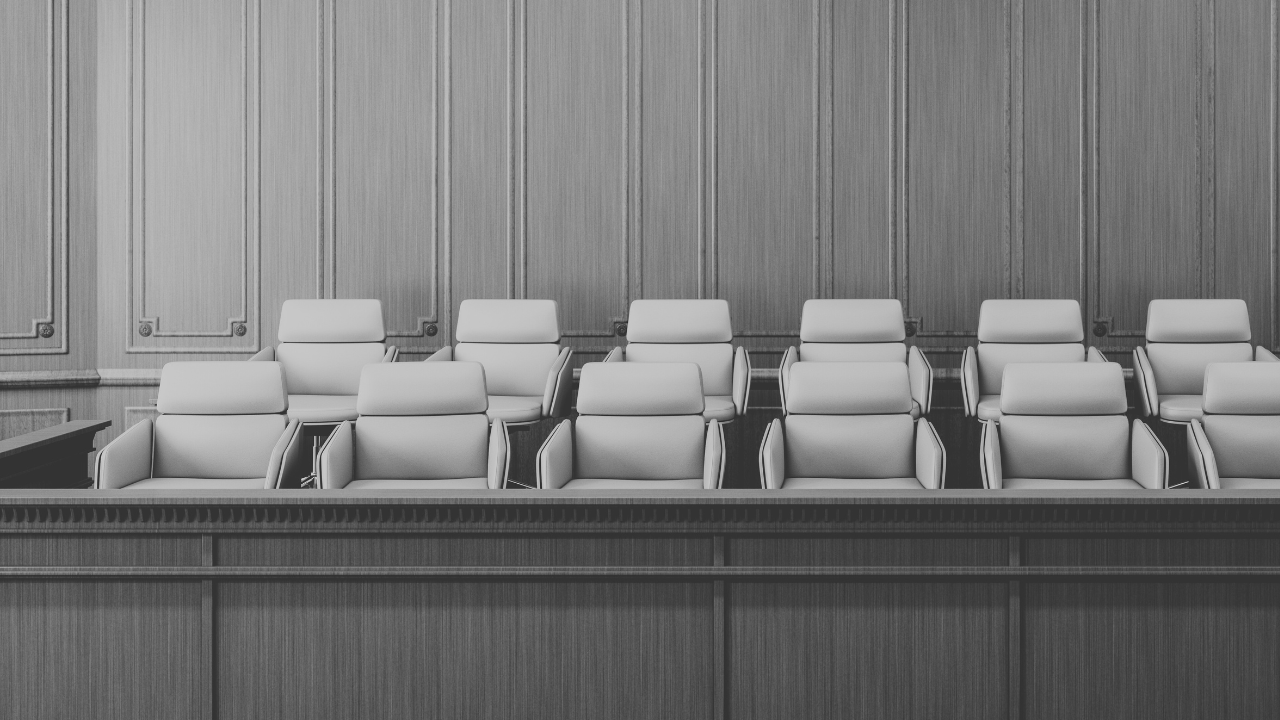
The Seventh Amendment to the United States Constitution contains two clauses: (1) the Preservation Clause; and (2) the Re-examination Clause. The Preservation Clause guarantees a jury trial in civil cases in federal court, while the Re-examination Clause limits the circumstances under which courts may overturn a jury’s findings of fact.
Under the Reexamination Clause, the Seventh Amendment protects the right of jury trial from indirect impairment through possible enlargement of the courts’ power of reexamination under the common law. The Seventh Amendment refers to the common law of England, the rules of which allow a reexamination only by a new trial granted by the trial court, or when ordered by an appellate court for error in law.
Controversies triggering the right to a jury trial may include, among other cases, copyright and fair use adjudications, fair housing laws, trademark and patent disputes, personal injury and other cases rooted in tort and contract at common law.
WHAT IS THE TEXT OF THE SEVENTH AMENDMENT TO THE UNITED STATES CONSTITUTION?
U.S. Const. Amend. VII. CIVIL TRIALS.
In Suits at common law, where the value in controversy shall exceed twenty dollars, the right of trial by jury shall be preserved, and no fact tried by a jury, shall be otherwise re-examined in any Court of the United States, than according to the rules of the common law.
WHAT IS THE HISTORICAL BACKGROUND OF THE SEVENTH AMENDMENT IN THE BILL OF RIGHTS?
The jury was viewed as the protector of human liberty by the English Middle Ages. See Arnold, Richard S., Trial by Jury: The Constitutional Right to a Jury of Twelve in Civil Trials 22 Hofstra L. Rev. 1 (1993). Some scholars traced the original jury back to ancient Greece, but credit the English civil government with the development of the jury system.
The beginning of the civil jury was in England—a constitutional right guaranteed by the Magna Charta. The jury’s function during the early years was to serve as a means of evidence gathering, and the customary number of men required was twelve. The jury became increasingly used to evaluate and weigh evidence presented by the parties involved, and twelve had come to be the recognized number. By 1367, the unanimity requirement was firmly established in both civil and criminal cases.
The colonists brought the jury to America, and all colonies instituted both civil and criminal jury trials by 1727. The Framers of the U.S. Constitution, including John Adams, Thomas Jefferson, and James Madison, recognized the importance of protecting individual liberties from government intrusion. Their intention, made clear by the Preamble, was to “form a more perfect Union, establish Justice, insure domestic Tranquility, provide for the common defense, and promote the general Welfare.” But the right to a civil jury trial in Amendment 7 was not included in the original draft of the Constitution. Hugh Williamson, a delegate from North Carolina, proposed its inclusion.
To assuage the Democratic-Republicans and Anti-Federalists, framer James Madison drafted the first ten constitutional amendments, known as the Bill of Rights, based on the desire to avoid another tyrannical government they had fought so hard against. The Federalist party secured the ratification of the U.S. Constitution by promising the addition of amendments codifying fundamental liberties outlined in the Bill of Rights.
The Bill of Rights guarantees fundamental freedoms often restrained by despotic, oppressive governments. It encompasses “the great rights” such as the 6th amendment right to trial by jury, the first amendment freedom of the press, the 2nd amendment right to keep and bear arms, and the 4th amendment right to be free from unreasonable government searches and seizures. They are considered the “choicest privileges of the people” in the United States, and are protected from government overreach through the fourteenth amendment due process clause. The Seventh Amendment only applies in federal courts, however, and state constitutions may create a civil right to jury trial.
WHAT IS THE SEVENTH AMENDMENT PRESERVATION CLAUSE?
The Preservation Clause of the Seventh Amendment to the Constitution of the United States guarantees the right to a jury trial in civil cases. It is a basic and fundamental feature of our system of federal jurisprudence. The right to a civil jury trial only applies in federal courts, not to suits decided by state courts.
The right extends beyond the common-law forms of action recognized at the time of the Amendment’s adoption, and the amendment may be construed to embrace all suits which are not of equity and admiralty jurisdiction. The pleadings or other document type do not conclusively establish the nature of the controversy—courts review the contested issues and requested relief to determine whether the parties have the jury trial right. Parties involved in copyright, fair use, trademark, patent, personal injury, and other tort and contract disputes may assert the Seventh Amendment right to jury trial.
Whether there is a right to a jury trial under the Seventh Amendment depends on the nature of the issue to be tried rather than the character of the overall action. The aim of the Seventh Amendment was to preserve the substance of the common-law right of trial by jury, as distinguished from mere matters of form or procedure.
What is the right to jury trial in civil cases?
Amendment 7 protects a litigant’s right to jury trial only if the cause of action is legal in nature, and involves a matter of private right. A suit constitutes an action at law if it seeks to recover and obtain possession of specific real or personal property, or to obtain a money judgment. Even if the relief sought is a declaratory judgment, a suit may nevertheless be a legal action rather than an equitable one.
To determine whether a particular action will resolve legal rights, and give rise to a jury trial right, courts examine both the nature of issues involved and the remedy sought. First, courts compare a statutory action to 18th-century actions brought in the court of England by using the “historical test” to determine the nature of issues. The question is whether the particular cause of action was one tried at law in 1791, or is analogous to an action that was tried at law at that time. Second, the remedy sought is examined to determine whether it is legal or equitable in nature.
In Curtis v. Loether, a black woman brought a civil action against the defendants under the Civil Rights Act of 1968, alleging the defendants refused to rent her an apartment because of her race. She sought only injunctive and punitive damages initially, rather than compensatory. The defendants demanded a jury trial, but the district court denied their request. The U.S. Supreme Court held the defendants were entitled to a jury trial in this case because the action brought under the fair housing provisions was an action to enforce “legal rights” within the meaning of the Seventh Amendment.
Why are there 12 jurors?
The number became fixed around 500 years ago, but historians struggle to pinpoint the reason for 12 jurors. Without misconstruction, the most reasonable explanation in Lord Coke’s Institutes of the Lawes of England and Duncombe’s 1665 work, Trials per Pais: “[the number twelve] is no less esteemed by our law than by Holy Writ. If the twelve apostles on their twelve thrones must try us in our eternal state, good reason hath the law to appoint the number of twelve to try our temporal. The tribes of Israel . . . the patriarchs . . . and Solomon’s officers were twelve.” Arnold, Richard S., Trial by Jury: The Constitutional Right to a Jury of Twelve in Civil Trials 22 Hofstra L. Rev. 1 (1993).
Is there a right to jury trial for class action suits?
Yes, under certain circumstances. As the United States Supreme Court has stated, “the certification of a mandatory class followed by settlement of its action for money damages obviously implicates the Seventh Amendment jury trial rights of absent class members.” Ortiz v. Fibreboard Corp., 527 U.S. 815 (1999).
In Ortiz v. Fibreboard Corp., decades of settlements and further onslaughts of lawsuits for asbestos personal injury forced defendants such as Fibreboard to negotiate a “global settlement.” A group of named plaintiffs filed suit in federal court seeking class certification. The U.S. Supreme Court held class action plaintiffs have a right to obtain a jury trial on any legal issues they present.
WHAT IS THE SEVENTH AMENDMENT REEXAMINATION CLAUSE?
The Seventh Amendment Re-examination Clause provides that no fact tried by a jury shall be otherwise reexamined in any court of the United States applies to facts tried by a jury in the state courts, and transferred to or reviewed in federal courts, as well as to cases tried first in federal courts. In short, “a losing litigant deserves no rematch after a defeat fairly suffered.” Astoria Fed. Sav. & Loan Assn. v. Solimino, 501 U.S. 104 (1991).
What is collateral estoppel?
Collateral estoppel, or issue preclusion, is the principle that once a court has decided an issue, it is forever settled as between the parties, thereby protecting against the expense and vexation of multiple lawsuits, conserving judicial resources, and fostering reliance on judicial action by minimizing the possibility of inconsistent verdicts. The general rule is that when an issue of fact or law is actually litigated and determined by a valid and final judgment, and the determination is essential to the judgment, the determination is conclusive in a subsequent action between the parties, whether on the same or a different claim. B & B Hardware, Inc. v. Hargis Industries, Inc., 575 U.S. 138 (2015).
What is a new trial?
The power of the trial judge to order a new trial derives from the equitable concept that neither the wronged litigant nor society itself can afford to be without some means to remedy a palpable miscarriage of justice. The granting of a new trial by a court does not invade the constitutional right of trial by jury because Amendment 7 permits the judicial authority to grant new trials according to the rules of common law—presently, the Federal Rules of Civil Procedure. State constitutions may established the standards for new trials at the state court level.
In Gasperini v. Center for Humanities, Inc., the plaintiff sued the defendant in federal court, invoking the court’s diversity jurisdiction, alleging state-law claims. The jury awarded $450,000 in damages. The federal Second Circuit vacated the judgment and awarded a new trial based on New York law permitting appellate courts to order new trials when the jury’s award “deviates materially from what would be reasonable compensation.” The U.S. Supreme Court held appellate review of jury verdicts, when confined to abuse of discretion, is reconcilable with the Seventh Amendment as a control necessary and proper to the fair administration of justice.
SEVENTH AMENDMENT TO THE UNITED STATES CONSTITUTION
The Seventh Amendment guarantee of the right to a jury trial in “Suits at common law” is limited to the rights and remedies peculiarly legal in their nature, and proper to assert in courts of law and by the appropriate modes and proceedings of courts at law. Shields v. Thomas, 59 U.S. 253 (1856). A court of equity may not take jurisdiction of a suit in which a claim properly cognizable only at law is united in the same pleadings with a claim for equitable relief. Scott v. Neely, 140 U.S. 106 (1891).
SIXTH AMENDMENT COURT CASES
The United States Supreme Court has interpreted and applied the Seventh Amendment since its adoption in 1791.
In B & B Hardware, Inc. v. Hargis Industries, Inc., when the defendant (Hargis) tried to register its trademark with the U.S. Patent and Trademark Office, B & B opposed it, claiming Hargis’ product is too similar to its own. The Trademark Trial and Appeal Board (TTAB) concluded Hargis’ product was too similar and should not be registered. At the same time as the administrative proceedings, B & B sued Hargis for infringement in federal court. The district court refused to apply the TTAB’s decision, but the U.S. Supreme Court disagreed. Federal courts should give preclusive effect to TTAB decisions, as long as the other elements of issue preclusion are met.
In Oil States Energy Services, LLC v. Greene’s Energy Group, LLC, the U.S. Supreme Court decided the U.S. Patent and Trademark Office’s ability to conduct “inter partes review” of patent claims did not violate the Seventh Amendment Reexamination Clause. Congress granted the PTO authority to re-examine patentability if there was a substantial new question of patentability for any claim of the patent. The decision to grant a patent is a matter involving a public right, and when Congress properly assigns a matter to adjudication in a non-Article III tribunal, the Seventh Amendment poses no bar to the adjudication of that action by a non-jury factfinder. The right to a jury does not apply.




